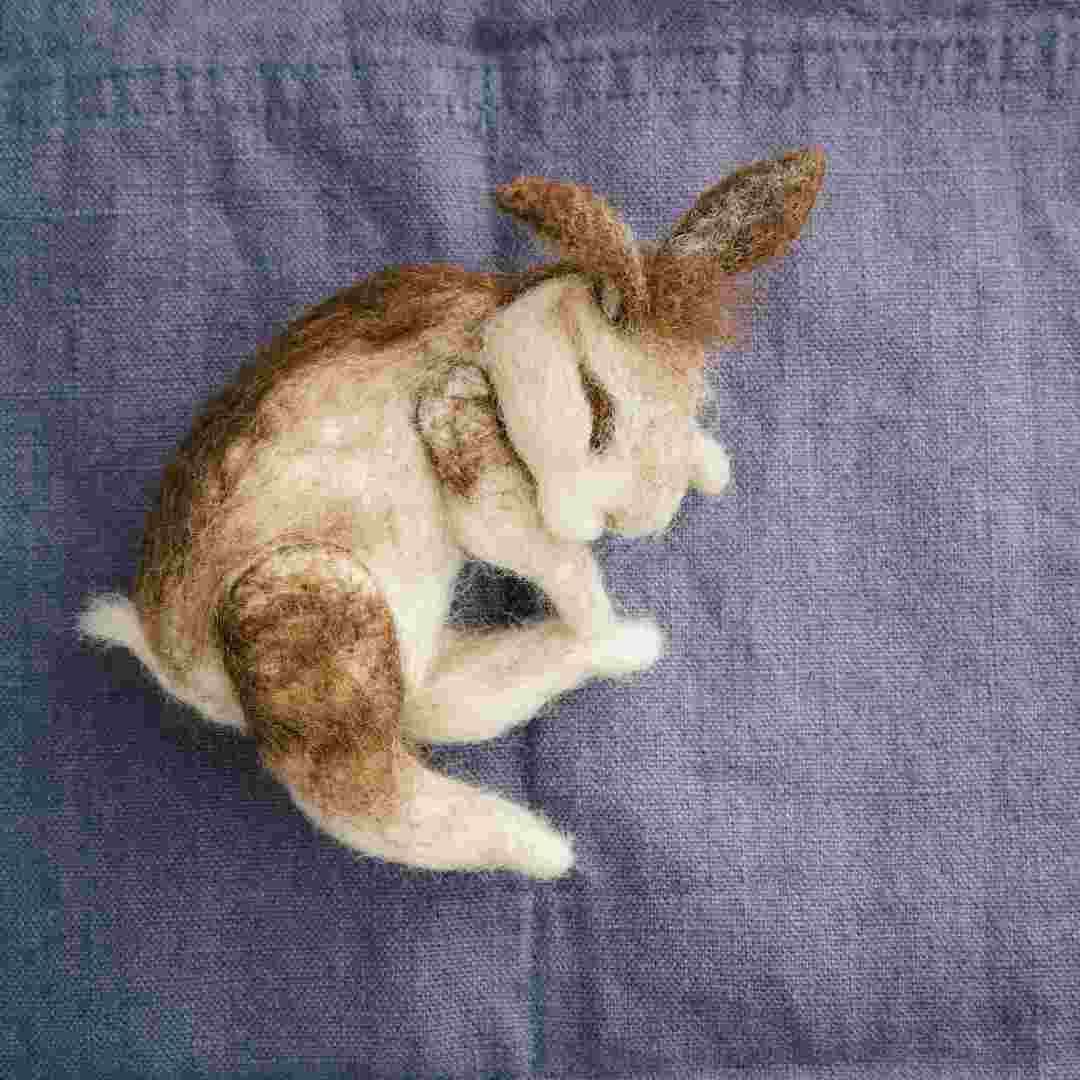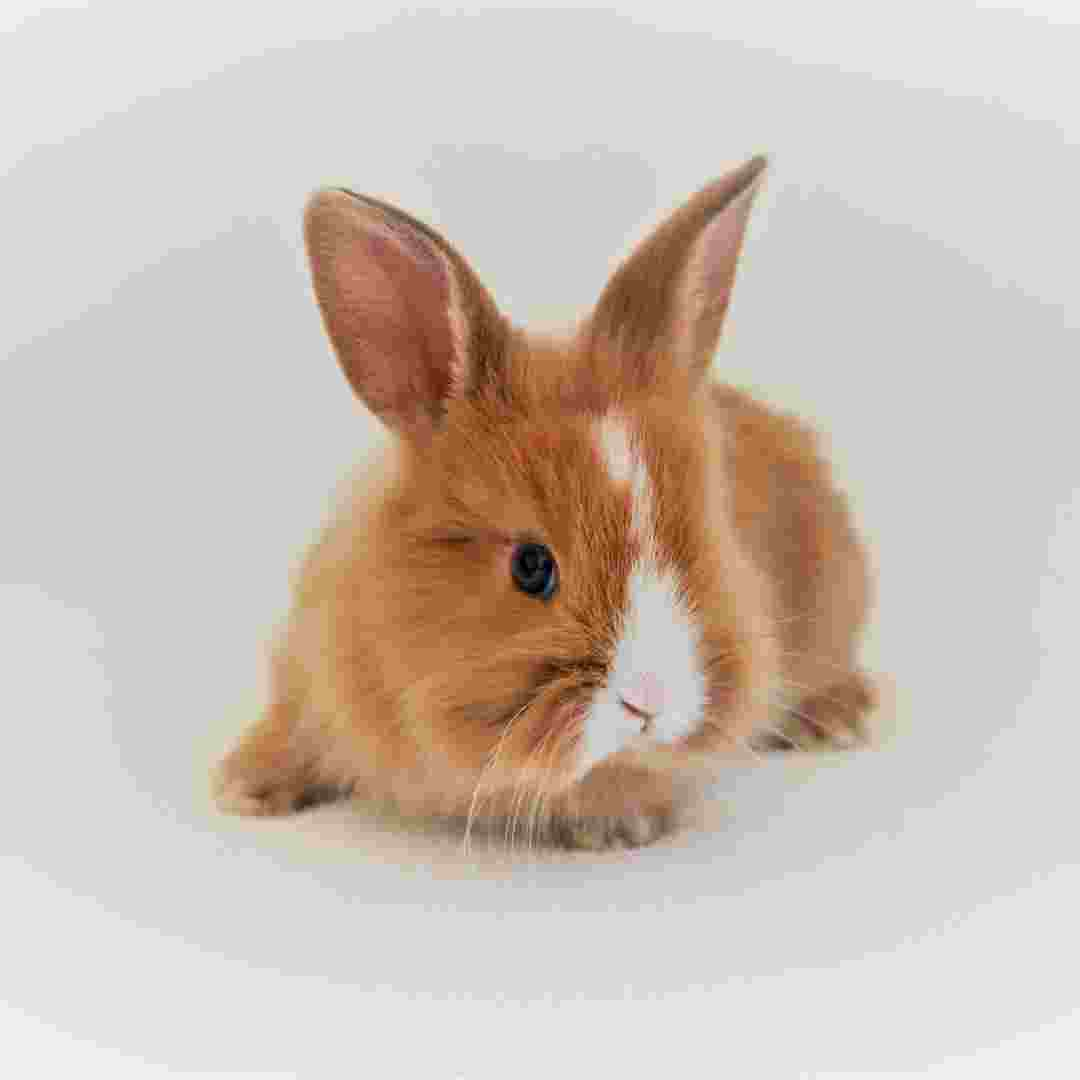Contents Table
Introduction
Check for Common Rabbit Death Causes
Overfeeding: How Much Food Can Kill Your Rabbit
Stress and Rabbit Health: How to Calm Your Rabbit
Ways to Prevent Rabbit Parasite Infestation
Poor Diet Affects Rabbit Health: What to Feed Your Rabbit for Best Health
Q&A
Conclusion
Introduction
Rabbits are fragile and can die for several reasons. Rabbits die from disease, injury, low diet, and parasites. Rabbits can also grow unwell or die from environmental changes, even slight ones. Know the indications of rabbit illness and give them the right care and diet to keep them healthy and happy.
Check for Common Rabbit Death Causes
Rabbits are lovely pets, but they can die from several health conditions. Knowing the typical rabbit deaths might help you spot problems and prevent them.
GI stasis is a leading cause of rabbit death. The digestive system slows or stops, causing gas and poisons to build up in the intestines. Lack of appetite, tiredness, and soft stools are GI stasis symptoms. Without treatment, GI stasis can kill. To prevent GI stasis, give your rabbit lots of fresh hay and water and a balanced diet.
Rabbits die from respiratory illnesses too. Poor ventilation, stress, and exposure to sick animals can trigger these infections. Respiratory infections include sneezing, coughing, and breathing problems. Untreated respiratory infections can kill. Keep your rabbit's environment clean and well-ventilated and take them to the vet often to prevent respiratory diseases.
Additionally, rabbits can develop deadly cancer if left untreated. Rabbit cancer symptoms include weight loss, tiredness, and lumps or bumps. If your rabbit exhibits any of these signs, take it to the vet.
Knowing the common rabbit deaths will help you keep your rabbit healthy and long-lived.
Overfeeding: How Much Food Can Kill Your Rabbit
Rabbits are cherished pets that need a balanced diet. Overfeeding can kill your rabbit. Overfeeding can kill your rabbit, as this article will explain.
Rabbits are grazers, thus they eat tiny amounts throughout the day. Overfed rabbits can become obese and develop health issues. Heart, respiratory, joint, and arthritic disorders are examples. Obesity can also cause gastrointestinal stasis, which slows or stops digestion. Not addressed quickly, this can kill.
Overeating might cause dental issues. Rabbit teeth grow continuously, so they chew hay and other roughage to wear them down. Overfeeding can prevent them from chewing hay, causing enlarged teeth and other dental disorders.
Lastly, overfeeding might cause behavioural issues. Overfed rabbits may become hostile, territorial, and inactive. This might cause boredom and melancholy, affecting their health.
Finally, overfeeding rabbits can kill them. You should feed your rabbit a balanced diet for their size and activity level. Ask your vet how much to feed your rabbit.
Stress and Rabbit Health: How to Calm Your Rabbit
Rabbits are delicate and quickly stressed. Stress can cause physical and behavioural problems in rabbits. Understanding stress causes and how to relax your rabbit is crucial to its health.
Changes in their habitat, loud noises, and unexpected persons or animals worry rabbits. Lack of space or hard handling can also stress rabbits. Stress can cause stomach disorders, appetite loss, and hostility.
Luckily, there are ways to alleviate rabbit stress. First, give your rabbit lots of room to roam. Keep your rabbit entertained with a range of toys and activities. Be gentle with your rabbit and avoid loud noises and unexpected movements. Slowly introduce different people and animals to your bunny.
Finally, Rabbit stress symptoms must be identified. Hide, groom excessively, and shift behaviour are stress symptoms. If you see any of these, lessen your rabbit's stress.
You can keep your rabbit healthy by understanding stress and reducing it. You can relax and please your rabbit with proper care.
Ways to Prevent Rabbit Parasite Infestation
Your rabbit may be harmed by parasites. Untreated, they can cause serious disease or death. Protecting your rabbit against infestation is crucial.
Rabbits' most prevalent parasite is the gastrointestinal roundworm. These intestinal worms induce diarrhoea, weight loss, and anaemia. Rabbits can also get fleas, mites, and lice. The parasites can cause skin irritation, hair loss, and anaemia.
Hygiene is the greatest technique to keep rabbits parasite-free. Clean your rabbit's cage and dispose of waste regularly. You should also keep your rabbit away from parasitic critters.
Rabbits need frequent veterinary treatment too. Rabbit parasites can be checked and treated by your vet. To avoid infestation, your vet may prescribe deworming.
Finally, give your rabbit a balanced food. A balanced diet helps enhance your rabbit's immune system and reduce parasites. Give your rabbit fresh vegetables and hay.
Prevent parasites and keep your rabbit healthy and happy with these steps.
Poor Diet Affects Rabbit Health: What to Feed Your Rabbit for Best Health
Rabbit health depends on diet. Poor diets can cause digestion disorders, obesity, and tooth disease. To provide your rabbit the finest nutrition, you must know what to feed them and how to balance their diet.
Rabbits are herbivores and should eat mostly hay and vegetables. Hay is high in fibre and helps rabbits digest, thus it should be their main food. Timothy, oat, and meadow hay are good. Fresh veggies give vitamins and minerals, therefore rabbits should eat them. Carrots, celery, kale, and parsley are rabbit-friendly vegetables.
In addition to hay and veggies, rabbits need a few pellets. Pellets provide concentrated nourishment and should make up 10-15% of a rabbit's diet. Some pellets contain substances that are not good for rabbits, so choose one specifically intended for them.
Sugary treats can cause obesity and dental disease, so provide them carefully. Healthy rabbit snacks include fresh fruits and vegetables.
You can keep your rabbit healthy and happy by feeding it hay, fresh veggies, and a few pellets.

Q&A
1. What are common rabbit deaths?
Rabbits die from gastrointestinal stasis, respiratory infections, parasites, trauma, and cancer.
2. What are ill rabbit symptoms?
A sick rabbit has a decreased appetite, lethargy, weight loss, diarrhoea, and trouble breathing.
3. How can I keep my rabbit healthy?
Keep your rabbit healthy with a clean, safe habitat, a balanced diet, and frequent veterinary treatment.
4. What to do if my rabbit is sick?
Take your ill rabbit to the doctor promptly for diagnosis and treatment.
5. How can I tell my bunny hurts?
Hunched posture, unwillingness to move, and excessive grooming are signs of rabbit suffering.
Conclusion
A rabbit can die from disease, injury, starvation, or predation. A rabbit's health and lifespan depend on a balanced diet, a safe environment, and frequent veterinary treatment. Without adequate care, a rabbit can quickly get unwell and die.
